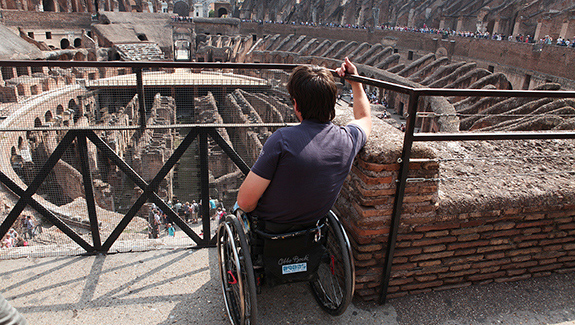What to Expect After Your Spinal Cord Injury
It’s normal to feel traumatized after a spinal cord injury. But take some comfort in knowing that your healthcare team is there to help. Learn what you can expect to happen.

Find out what happens after your spinal cord injury.
If you have sustained an injury to your spinal cord, the first few days afterward can be very scary, hectic, and confusing. To help you better understand what’s happening, here is what you can expect to experience in the short term.
What happens after your spinal cord injury
Immediately following your spinal cord injury, your healthcare team will be working hard to diagnose the extent of the damage, limit your pain, and prepare you for what’s ahead. You’ll undergo many physical examinations and diagnostic tests. You also may be given medications to reduce the inflammation of your spinal cord, and to prevent blood clots.
Spending time in an intensive care unit is not unusual. X-rays and scans can help the doctors determine your level of injury and whether damage was sustained to any other part of your body. They will be able to tell if your vertebral column was fractured. Or, if it’s compressing the spinal cord, you may need a brace or surgery to stabilize it.
Getting what you need
The more extensive your injury, the more equipment and assistive devices you’ll need for all of your daily activities. Your injury level will also dictate whether you need a power or manual wheelchair. In addition, you may need help with daily living tasks, including bowel and bladder care, positioning, transfers, dressing, and bathing.
Your healthcare team will be involved during your hospitalization and rehabilitation to ensure you get the help you need and show you how to best manage your injury. You should also make sure your home is ready for you before you leave rehabilitation. A therapist can help, and many often visit a patient’s home to suggest small changes, such as a ramp instead of front steps, and a hand rail next to the toilet and the bathtub.
Starting to move
Once you get home, it will be important to exercise and maintain good cardiovascular health. Exercise will help you stay physically strong and make daily tasks easier. It has other benefits as well. You’ll gain greater flexibility, improve your muscle tone, increase your stamina and energy, and lower your stress.
Initially, your exercise program will be designed to increase your strength, so you can adjust to new activities like pushing a wheelchair, transferring your body, and moving in bed. You’ll also be taught proper techniques to ensure safety and avoid further injury. All of this will be part of a program tailored to your specific needs.




